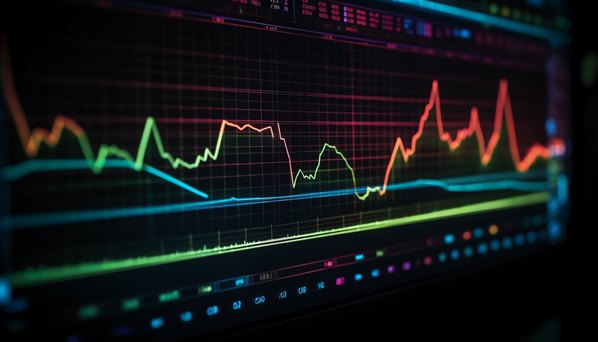
As blockchain technology evolves, decentralization has become a fundamental principle in many cryptocurrency projects. One of the key mechanisms enabling decentralized governance is the use of governance tokens. These tokens provide holders with voting rights and decision-making power, allowing them to influence the development and future direction of decentralized finance (DeFi) platforms, DAOs (Decentralized Autonomous Organizations), and blockchain protocols.
Governance tokens have gained immense popularity, particularly in the DeFi sector, where decentralized platforms need to operate without a central authority. Some of the most well-known governance tokens include Uniswap (UNI), Aave (AAVE), and Maker (MKR). These tokens empower users by giving them a voice in protocol upgrades, fee structures, treasury allocations, and other critical decisions.
In this article, we will explore how governance tokens work, their advantages, potential risks, and real-world examples of their impact in the crypto ecosystem.
What Are Governance Tokens?
Definition and Key Features
A governance token is a type of cryptocurrency that grants holders the ability to vote on decisions within a blockchain project or DeFi platform. These decisions can range from minor updates to major protocol upgrades.
Decentralized Decision-Making Token holders participate in governance proposals and votes.
Voting Power The more tokens a user holds, the greater their influence in decision-making.
Protocol Development Governance tokens determine the future updates, changes, and rules of a decentralized platform.
How Governance Tokens Work
- Proposal Creation: Any token holder or developer can submit a proposal for protocol changes.
- Community Discussion: The proposal is reviewed, debated, and adjusted if necessary.
- Voting Process: Governance token holders cast votes in favor or against the proposal.
- Implementation: If a proposal is approved, it is executed via smart contracts, updating the protocol accordingly.
Example:
Uniswap (UNI) token holders vote on liquidity pool rewards, fee adjustments, and protocol upgrades to ensure fair and transparent governance.
Benefits of Governance Tokens
1. Decentralization and Community Control
Ensures that no single entity controls the platform, promoting trust and transparency.
2. Incentivizing Participation
Many governance models reward active participants with extra tokens or staking rewards.
3. Efficient Decision-Making
Allows for democratic governance, where token holders collectively decide the future of the platform.
4. Alignment of Interests
Governance tokens align user and developer incentives, ensuring the platform remains user-driven.
Example:
MakerDAO uses MKR tokens to allow users to vote on risk parameters and stability fees in its lending protocol.
Risks and Challenges of Governance Tokens
1. Centralization of Voting Power
Large investors or whales can acquire significant portions of governance tokens, leading to centralized decision-making.
2. Low Participation in Governance
Many token holders do not actively vote, reducing the effectiveness of decentralized governance.
3. Susceptibility to Governance Attacks
Malicious actors can coordinate attacks to push harmful proposals and exploit protocols.
4. Complexity and Technical Barriers
Understanding governance proposals requires technical knowledge, which limits participation among non-technical users.
Popular Governance Tokens in Crypto
1. Uniswap (UNI)
Allows holders to vote on protocol changes and fee structures.
UNI holders decide how liquidity incentives are distributed.
2. Aave (AAVE)
Enables users to govern interest rate models and liquidity parameters.
AAVE token holders can propose new lending markets.
3. Maker (MKR)
Allows holders to vote on stability fees and risk parameters for the MakerDAO system.
Determines how DAI stablecoins are collateralized.
4. Compound (COMP)
Empowers token holders to propose and vote on governance upgrades.
Votes determine interest rates and collateral factors in the lending protocol.
How to Participate in Governance Voting
Hold Governance Tokens Acquire UNI, AAVE, MKR, or COMP tokens to gain voting rights.
Stay Updated Follow governance forums and discussions on platforms like Snapshot and Aragon.
Vote on Proposals Participate in on-chain or off-chain voting through blockchain-based governance systems.
FAQ: Governance Tokens
1. What is the main purpose of governance tokens?
Governance tokens allow decentralized decision-making, giving users control over protocol updates.
2. How do governance token holders influence protocols?
Holders can vote on proposals, upgrades, and fee structures that shape the future of the platform.
3. Are governance tokens valuable?
Yes. Many governance tokens gain value over time as demand for participation in governance increases.
4. Can governance tokens generate passive income?
Some platforms reward governance participants with additional tokens or staking rewards.
5. What are the risks of governance tokens?
Low participation, governance attacks, and centralization of voting power among large holders.
6. How can I buy governance tokens?
Governance tokens are available on major exchanges like Binance, Coinbase, and Uniswap.
7. Can governance token holders reverse previous votes?
In some cases, token holders can vote on proposals to reverse or amend past decisions.
8. Where can I learn more about governance token trading?
Platforms like Immediate Hiprex provide insights into crypto governance, staking, and trading strategies.
Conclusion
Governance tokens have transformed decentralized decision-making by giving users a direct say in the evolution of blockchain protocols. These tokens empower communities, incentivize participation, and promote transparency in DeFi platforms and DAOs.
However, governance tokens are not without challenges. Low participation, centralization risks, and governance manipulation remain concerns. As the crypto ecosystem matures, improvements in governance models and voting mechanisms will make decentralized decision-making more efficient and inclusive.
For traders and investors looking to explore governance tokens, platforms like Immediate Hiprex offer tools and resources to understand governance voting, staking rewards, and protocol developments in the crypto space




